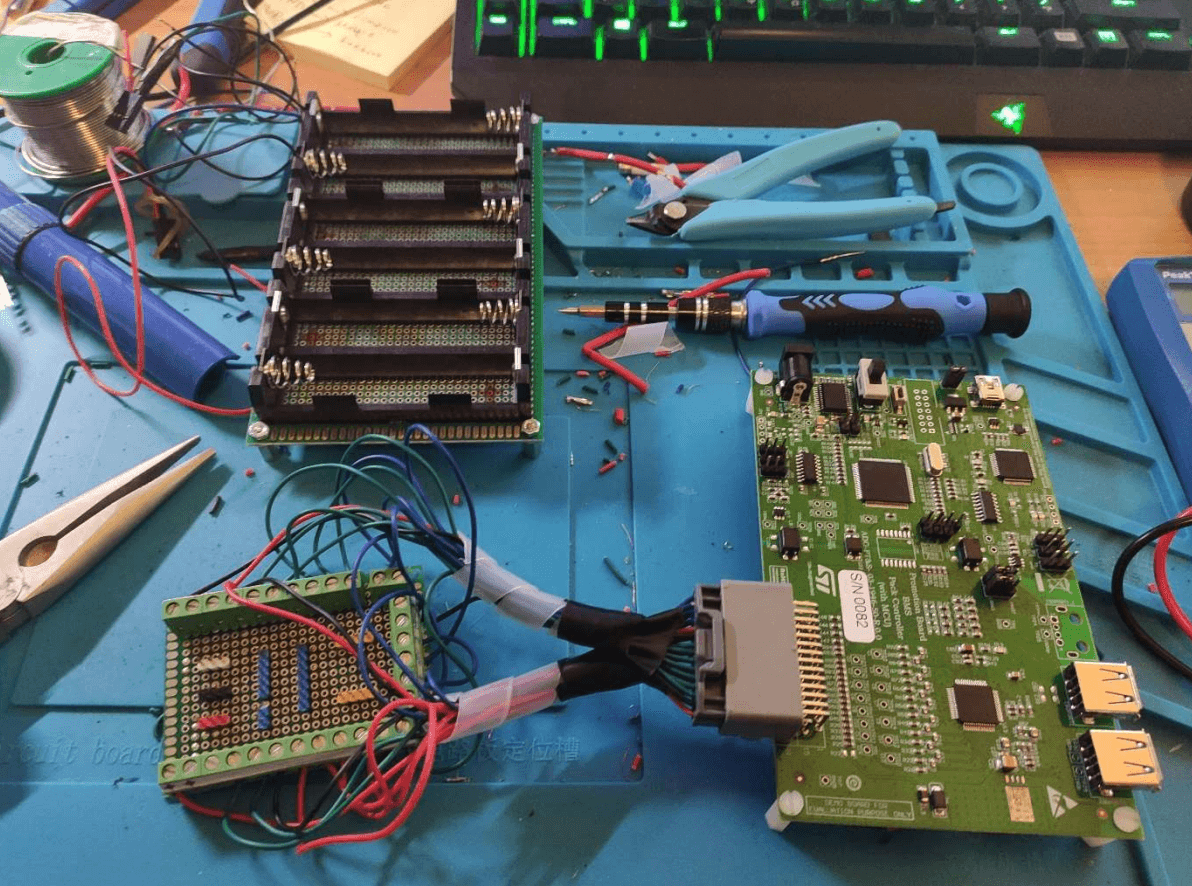- Published on
Design and Development of a Digital Twin of an Electric Vehicle’s Batteries
- Authors

- Name
- Petros Savvakis
- @PetrosSavvakis
Objective:
The thesis focuses on designing and developing a digital twin of an energy storage system for electric vehicles (EVs), specifically utilizing lithium-ion batteries. The primary goal is to create a system that can monitor and manage the voltage, current, and temperature of the battery cells and the overall battery pack, optimizing the charging and discharging processes through real-time data analysis and cloud computing.
Key Components:
Measurement System:
Development of a system to measure the voltage, current, and temperature of lithium-ion battery cells and the entire battery pack. Utilization of sensors and microcontrollers to gather data. Data Management and Cloud Integration:
Collected data is stored and processed in the cloud. Creation of a digital twin, which is a virtual replica of the physical battery system, allowing real-time monitoring and analysis. Implementation of a user interface (UI) for real-time data visualization. Optimization of Battery Management:
The integrated system makes decisions based on the collected data to manage the charging and discharging cycles optimally. Continuous improvement of the battery management model through ongoing data collection and analysis, enhancing the physical model over time.
Methodology:
System Design:
Use of voltage, current, and temperature sensors connected to a microcontroller to collect real-time data. Data transmission to the cloud for storage and processing. Development of algorithms for optimal battery management, ensuring efficient energy use and extending battery life.

Digital Twin Development:
Creation of a virtual model that mirrors the physical battery system. Real-time synchronization between the digital twin and the physical system to provide accurate monitoring and predictive maintenance.
Cloud Computing:
Integration of cloud services to handle large volumes of data. Use of cloud-based analytics to derive insights and improve the battery management system.

Outcomes:
Successful design and implementation of a digital twin for an EV's energy storage system. Enhanced battery management through real-time monitoring and data-driven decision-making. Improvement in the efficiency and lifespan of lithium-ion batteries through optimized charging and discharging cycles.
Future Work:
Further refinement of the digital twin model to enhance its predictive capabilities. Exploration of additional applications for the digital twin technology in other types of energy storage systems. Expansion of the system to include more advanced analytics and machine learning techniques for even better performance optimization.